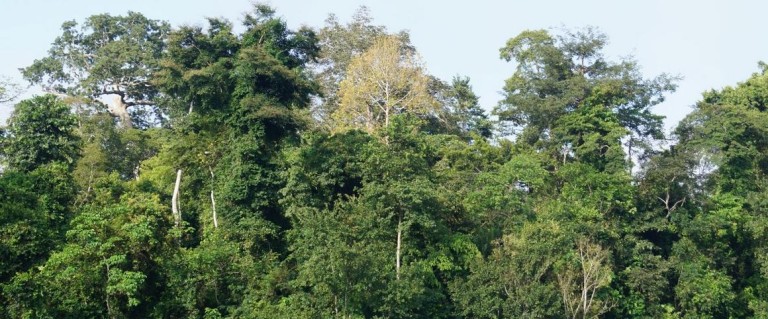

11.03.2022
In Ivory Coast, researchers are observing the mechanisms of tropical forest regeneration, while the country, the world's largest producer of cocoa beans, has lost more than 80% of its forest cover since the 1960s.

Secondary forest in the Agbo classified forest, Ivory Coast, 30 years after abandoning farming © Anny E N’Guessan
It is the speed of this regeneration, much faster than in temperate zones, that surprises the researchers. They can see that in about 20 years, after a period without agricultural activity, tropical forests have the potential to grow back naturally thanks to a phenomenon of progressive reconstruction of the ecosystem, called natural succession. The results of this work were recently published in the journal Science.
How can we explain this regeneration, which occurs without human intervention? In fact, even after the trees have been cut down to make way for agricultural practices (in Côte d'Ivoire, mostly coffee and cocoa trees), seeds remain stored in the soil, constituting “seed banks”. The climate, hot and humid, and animals do the rest: termites stir up the soil, birds spread the seeds, and the trees grow back.
In 2019, a Franco-Ivorian team of researchers, including CIRAD, the Institut national polytechnique Houphouët-Boigny, Sodefor (Société de Développement des Forêts) and the Universities of Abidjan and Daloa, collected data from all the trees on eight plots in Côte d'Ivoire, with the aim of analyzing a dozen data, including the carbon present in the soil and the structure of the forest. They also interviewed former farmers to understand the agricultural history of the analyzed plots. The team then modeled the reconstitution trajectories of these forests.
This work aims to inform forestry policies in tropical countries. The analyses carried out support the principles of sustainable forest management, by highlighting the natural regeneration capacity of trees: sustainable management promotes a exploitation respectful of ecosystems, attentive to the rate of forest reconstitution. Moreover, scientific research on the regeneration mechanisms of tropical forests is beneficial for reforestation activities, which should be thought of as complementary to the natural reconstitution of forests. According to Bruno Hérault, a specialist in tropical forest landscapes at CIRAD: “There is no silver bullet for forest restoration. A combination of approaches is needed in most tropical territories. Passive natural regeneration has its place in conjunction with other more active solutions (assisted natural regeneration, agroforestry, forest plantations), depending on the local objectives. Our work in Ivory Coast shows that a whole range of solutions can be mobilised and co-developed, according to the social, economic, historical and ecological contexts of the territories targeted”.
ATIBT channel on YouTube
ATIBT channel on YouTube